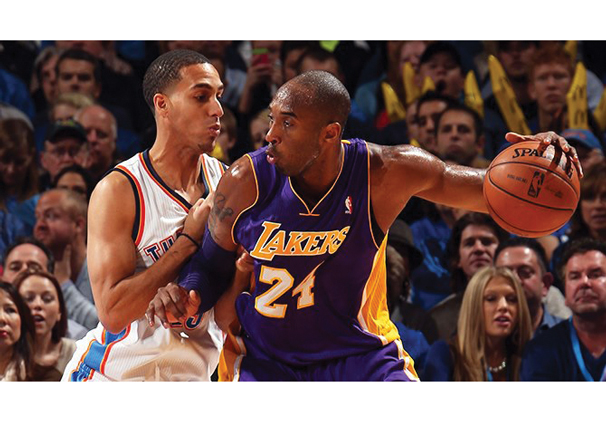
The NBA has enjoyed spectacular success capitalizing on sports fans’ thirst for excitement. Commissioner David Stern and his minions at the league’s Midtown headquarters have created a global brand leveraging superstars and individual basketball prowess. From flashy dunks and buzzer-beaters to no-look passes and fear-instilling blocks, these stars can be neatly packaged into SportsCenter highlights and slapped with the NBA’s slogan “where amazing happens.”
This all makes for fantastic television. Fans around the world are dazzled by players like LeBron James and Kobe Bryant. Bryant’s Lakers are easily the most popular team in the NBA, while James’ Heat also have millions of fans. In years past, Michael Jordan’s Bulls and Dominique Wilkins’ Hawks supplied viewers with primetime drama.
But is “where amazing happens” also where championships happen? Does the presence of such prominent figures translate into better basketball? Despite what ESPN would lead you to believe, boring is often just as amazing.
The most prolific adherents to the ethos of boring basketball are the Boston Celtics. The 17 banners hanging from the rafters of Boston’s TD Garden were not won with maximum-level contracts and high-profile free agents. The Celtics are a franchise rooted in a strong work ethic and shared success: Celtic Pride. It’s about the name on the front of the jersey, not the back. Toughness and individual sacrifice have brought the Celtics championships, which lead to successful, if less marketable basketball.
Boston isn’t alone in refusing to pander to Madison Avenue. For 15 straight seasons, the San Antonio Spurs have posted a winning record and appeared in the playoffs. Their NBA championships during that time transformed them into a premier franchise in the league.
Has San Antonio won with gun-slinging, desperado basketball? No. Like Boston, they preach the gospel of team effort. Tim Duncan, Tony Parker and Manu Ginóbili have reaped the rewards of old-fashioned, workingman’s basketball, sacrificing individual statistics for the team’s benefit, much to Stern’s chagrin.
Teams like the defense-oriented Indiana Pacers and the shoestring-budget Memphis Grizzlies epitomize “boring is better.” These franchises pose formidable challenges to powerhouses like Miami and Oklahoma City, flying in the face of the league’s proclamation that bombastic superstars in big cities hold the key to victory.
Sure, superstars can win championships — the Los Angeles Lakers have won 16 thanks to the fabled heroics of Wilt Chamberlain, Kareem Abdul-Jabbar, Magic Johnson, Shaquille O’Neal and Bryant. James and the star-stacked Miami Heat lifted the O’Brien Trophy last June. And, of course, Jordan himself has six. But even “Showtime,” the swagger of South Beach, and “His Airness” respect teamwork and toughness. In stark contrast, the 2013 Lakers are floundering despite the massive talents of Bryant, Dwight Howard and Steve Nash. The New York Knicks, captained by highlight reel regular Carmelo Anthony, are stumbling in the Eastern Conference thanks to Anthony’s me-first, hero-shot mentality.
What wins championships is neither offense nor defense, but chemistry. Basketball is ultimately a team sport, one that must be played by five players on the court at the same time. No matter how skilled a single player may be, it amounts to nothing if the game is to be played on an individual level. Even if amazing keeps the money flowing into the NBA, boring will always be a force to be reckoned with, despite Stern’s efforts to convince viewers otherwise.
A version of this article was published in the Monday, March 11 print edition. Charles Surette is a contributing writer. Email him at [email protected].






















































































































































